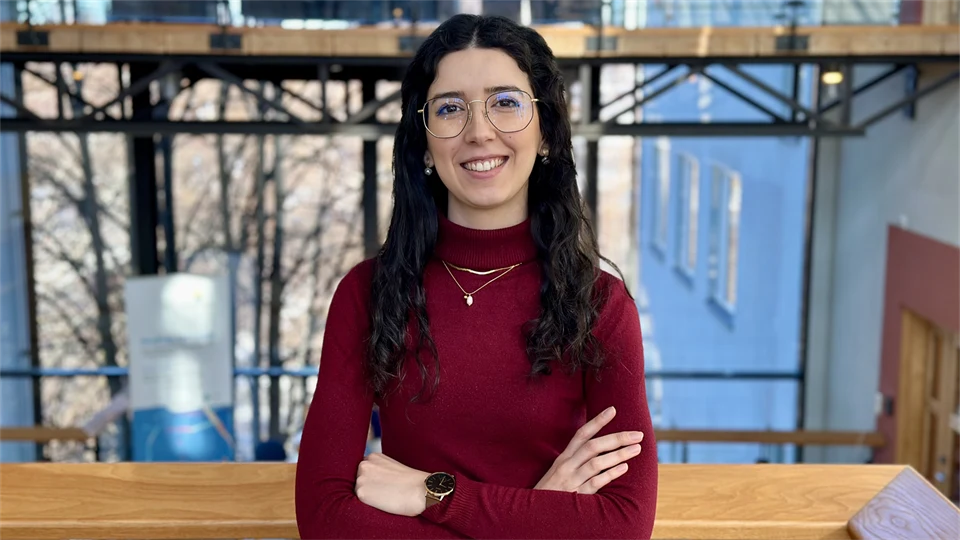From Forest to Hair Care – Portuguese Researcher Develops Eco‑Friendly Conditioner
Catarina Fernandes, a PhD student in Chemical Engineering at the University of Coimbra, Portugal, has spent two months at the FSCN Research Centre at Mid Sweden University. In Sundsvall, she has further developed her research on how a byproduct from biomass can be used in hair conditioner.
Can you tell us more about your research?
My research focuses on utilizing biomass residues to develop sustainable hair care products. I specifically focus on lignin—a natural component of wood—and its potential as an eco-friendly alternative to conventional ingredients in hair conditioners. Lignin is often considered a byproduct, but it has great potential as a sustainable raw material for new products.
Many of today’s conditioning agents are fossil-based and can negatively impact the environment, particularly aquatic ecosystems, where they can be harmful. My goal is to develop a sustainable alternative using lignin, ensuring the same conditioning effect but with significantly less environmental impact.
What brought you to Mid Sweden University?
This opportunity arose through an ongoing collaboration between the FSCN Research Centre and researchers at the CERES and MED research centers in Portugal. My research aligns perfectly with FSCN’s work in developing sustainable materials and circular processes. It’s inspiring to work in a place where sustainability and innovation in forestry-based materials are a key focus.
What have you been working on during your time here?
At Mid Sweden University, I have studied how the lignin-based compounds I developed interact with damaged hair. In Portugal, I successfully extracted lignin using eco-friendly methods and modified its properties to enhance its interaction with human hair. I had already demonstrated its environmental benefits, but I needed more data on how it affects hair structure and quality.
Here, I have had the opportunity to test real hair samples and analyze how lignin alters the hair’s properties after treatment. We now have scientific evidence that lignin can bind to hair and remain even after rinsing—making it a promising, sustainable ingredient for hair care products.
What has it been like to work in another research group?
It has been an amazing experience! I’ve had the opportunity to work in a new research environment, experience a different culture, and explore new ways of working. I have also met researchers from various parts of the world, which has been both inspiring and enriching. Everyone has been incredibly welcoming and supportive, making me feel like part of the team from day one.
What do you think about Mid Sweden University and Sweden?
Mid Sweden University has a very open and inclusive atmosphere, making it a great place to study and conduct research. It’s easy to feel at home here, even when far away from your own country. The international environment at the university makes the experience even more rewarding. I also really like Sundsvall—it’s a cozy and peaceful city. I have truly enjoyed my time here!
I also really like Sundsvall—it’s a cozy and peaceful city. I have truly enjoyed my time here!
Do you have any advice for other international PhD students coming here?
My best advice is: go for it! Exchanges like this are incredibly valuable, both professionally and personally. You learn a lot, not only within your research field but also about different cultures and ways of thinking. It’s also a great opportunity to expand your network, improve communication skills, and gain new perspectives on your research.
Contact:
Catarina Fernandes, PhD student in Chemical Engineering at the University of Coimbra, catarina.fernandes@miun.se
